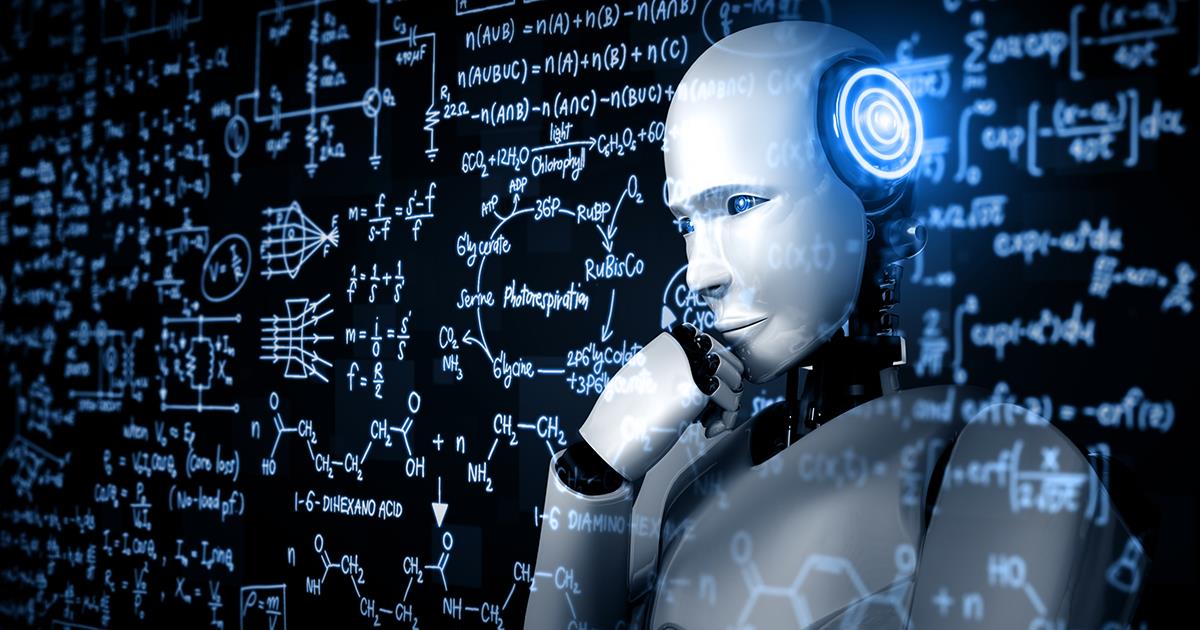
Artificial intelligence (AI) is revolutionizing the healthcare industry, propelling innovation and transforming patient care.
This article explores ten groundbreaking ways in which AI is reshaping healthcare.
From machine learning and predictive analytics to robotics and virtual assistance, AI is enhancing precision medicine, telemedicine, and medical imaging analysis.
We delve into the transformative power of AI, providing an analytical and insightful overview of its impact on healthcare, empowering readers with knowledge of these innovative technologies.
Machine Learning
Machine learning plays a pivotal role in revolutionizing healthcare by utilizing vast amounts of data to make accurate and informed predictions. With the advancements in technology and the availability of big data, machine learning algorithms have the ability to analyze complex medical data and identify patterns that may not be detectable by human experts alone.
Through data analysis, machine learning algorithms can identify hidden correlations and trends, enabling healthcare professionals to make more precise diagnoses and treatment plans. Furthermore, machine learning algorithms are capable of pattern recognition, which allows them to detect anomalies and predict potential health risks. These predictive capabilities can help healthcare providers intervene early and prevent adverse outcomes.
Predictive Analytics
Utilizing the insights gained through machine learning algorithms, predictive analytics in healthcare allows for the proactive identification and management of potential health risks and outcomes.

Predictive modeling, a key component of this approach, uses historical data and patterns to forecast future events and trends.
By analyzing vast amounts of patient data, including medical records, genetic information, and lifestyle factors, predictive analytics can provide valuable insights into individual health risks and help healthcare providers make informed decisions about treatment plans and interventions.
This data-driven approach enables healthcare professionals to intervene earlier, potentially preventing or mitigating the onset of certain diseases or conditions.
Patient Data Processing
Artificial intelligence is revolutionizing healthcare by efficiently and consistently processing patient data. With the advancement of AI technology, healthcare providers can now analyze vast amounts of patient data in real-time, leading to more accurate diagnoses and personalized treatment plans. However, this progress also raises concerns about data security and privacy.
Patient data includes sensitive information such as medical history, test results, and personal identifiers. Protecting this data is crucial to maintain patient trust and comply with privacy regulations. AI systems must adhere to stringent data security protocols to safeguard patient information from unauthorized access or breaches.
To address privacy concerns, healthcare organizations are implementing robust data protection measures. These measures include encryption, anonymization, and access controls. Additionally, AI algorithms are designed to process data securely, without compromising patient privacy.
As AI continues to transform patient data processing, it is essential that healthcare providers prioritize data security and privacy to ensure patient confidence and the responsible use of AI technology.

Robotics
Robotics is revolutionizing healthcare by improving surgical precision and enhancing patient care. With the help of artificial intelligence, robotic systems can perform complex surgeries with unprecedented accuracy, minimizing the risk of human error.
These advancements in robotics are not only benefiting patients by reducing complications and improving outcomes, but they are also empowering surgeons with advanced tools and capabilities, ultimately transforming the field of healthcare.
Surgical Precision Improvements
The implementation of advanced robotic systems has brought significant improvements to surgical precision in healthcare. By leveraging artificial intelligence (AI) and machine learning algorithms, these systems enable real-time monitoring and enhance the accuracy of surgical procedures.
One notable advancement is the use of robotics in minimally invasive procedures. With the help of AI-powered robots, surgeons can perform complex surgeries through small incisions, minimizing patient trauma, reducing post-operative pain, and speeding up recovery time. These robots offer unparalleled precision and dexterity, allowing surgeons to perform intricate tasks with utmost accuracy.
Furthermore, the integration of AI algorithms enables the robots to adapt and learn from each surgical procedure, continuously improving their performance. As a result, patients can benefit from safer, more effective surgeries, leading to better overall healthcare outcomes.
Enhancing Patient Care
How can artificial intelligence and robotics enhance patient care in healthcare?
One way is through the use of remote monitoring and wearable technology. These innovative tools allow healthcare professionals to monitor patients' vital signs and health conditions from a distance, enabling early detection of potential issues and timely intervention. Remote monitoring devices, such as smartwatches or fitness trackers, can continuously track patients' heart rate, blood pressure, and other important health metrics. This data is then transmitted to healthcare providers, who can analyze it in real-time and provide personalized care recommendations.
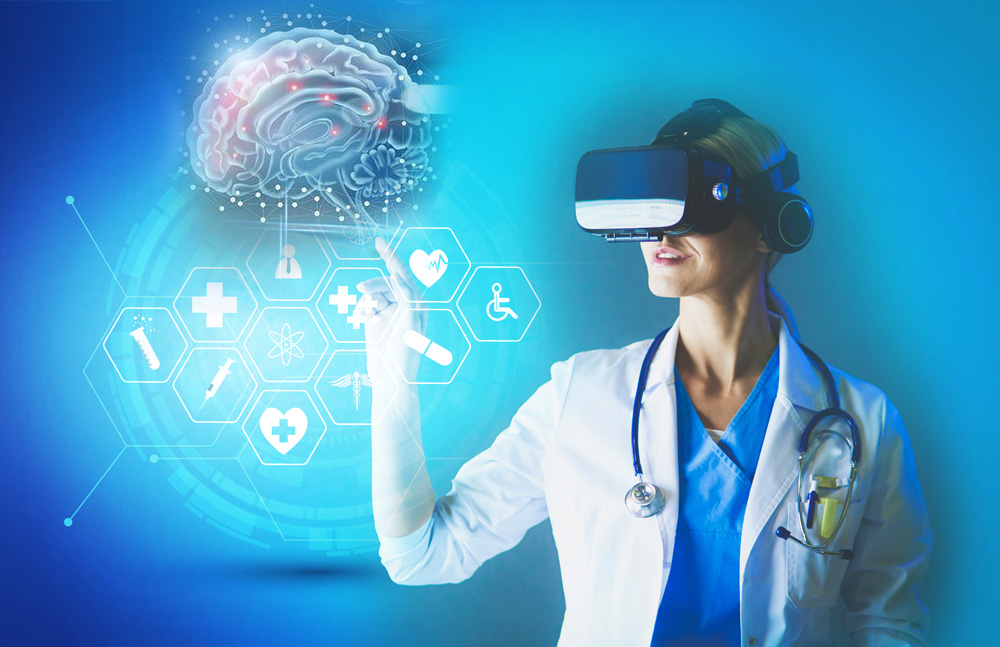
Additionally, robotics can play a crucial role in patient care by assisting with tasks such as medication delivery, patient mobility, and physical therapy.
With the integration of artificial intelligence and robotics, patient care can be enhanced, leading to improved outcomes and a better overall healthcare experience.
Virtual Assistance
Virtual assistance in healthcare has revolutionized patient communication by providing real-time support and information. AI-powered virtual assistants can accurately assess symptoms and provide preliminary diagnoses, improving the accuracy of patient evaluations.
Furthermore, they streamline administrative tasks such as appointment scheduling and medication reminders, freeing up healthcare professionals' time for more critical tasks.
Improved Patient Communication
Artificial intelligence has greatly enhanced patient communication in healthcare through the integration of virtual assistants. These virtual assistants have revolutionized the way patients interact with healthcare providers, resulting in improved patient satisfaction and better overall care.
Here are three ways in which virtual assistants have improved patient communication:
- Real-time support: Virtual assistants are available 24/7, providing patients with immediate access to information, guidance, and support. This enables patients to receive timely responses to their queries, enhancing their experience and reducing anxiety.
- Remote patient monitoring: Virtual assistants can remotely monitor patients' health conditions, collecting and analyzing data to provide personalized recommendations. This allows healthcare providers to proactively manage chronic conditions and intervene when necessary, leading to better patient outcomes.
- Language translation: Virtual assistants can overcome language barriers by providing real-time translation services. This enables effective communication between patients and healthcare providers, ensuring accurate understanding and reducing the risk of miscommunication.
Through virtual assistants, artificial intelligence has transformed patient communication, empowering patients and improving the delivery of healthcare services.

Enhanced Diagnosis Accuracy
The integration of virtual assistants in healthcare has not only improved patient communication, but it has also enhanced diagnosis accuracy through the utilization of artificial intelligence.
Virtual assistants, powered by AI algorithms, are capable of analyzing vast amounts of patient data, including medical records, symptoms, and test results, to provide accurate and timely diagnoses. This enhanced accuracy is crucial for early intervention, as it allows healthcare providers to identify and treat conditions at their earliest stages, improving patient outcomes and reducing healthcare costs.
Moreover, virtual assistants enable remote monitoring, allowing patients to receive real-time feedback and guidance from healthcare professionals without having to visit a clinic or hospital. This not only enhances convenience for patients but also enables proactive healthcare management, ultimately leading to better overall healthcare outcomes.
Streamlined Administrative Tasks
With the integration of virtual assistants powered by AI algorithms, healthcare providers are able to streamline administrative tasks, improving efficiency and allowing for more focus on patient care. This automation benefits the healthcare industry in various ways, including cost reduction and increased productivity.
Here are three key ways in which virtual assistants are transforming administrative tasks in healthcare:
- Appointment scheduling: Virtual assistants can handle appointment scheduling, sending reminders to patients, and managing calendars for healthcare providers. This reduces the workload for administrative staff and ensures that appointments are efficiently managed.
- Medical record management: AI-powered virtual assistants can organize and manage electronic health records, making them easily accessible to healthcare professionals. This eliminates the need for manual data entry and helps in retrieving patient information quickly.
- Billing and insurance processing: Virtual assistants can automate the billing process, reducing human errors and ensuring accurate claims submission. They can also assist in verifying insurance coverage and handling claims, speeding up the reimbursement process.
Drug Development
AI-driven algorithms are revolutionizing drug development by accelerating the identification and optimization of potential compounds. With the ability to analyze vast amounts of data and simulate complex biological systems, AI is transforming the traditional drug discovery process. By leveraging machine learning and predictive modeling, AI algorithms can quickly identify promising drug candidates and optimize their properties for efficacy and safety.
One area where AI is making a significant impact is in the prediction of clinical trial outcomes. By analyzing patient data and historical trial results, AI algorithms can help researchers identify the most suitable patient populations and predict the likelihood of success for a particular drug candidate. This not only saves time and resources but also improves the chances of a successful outcome.
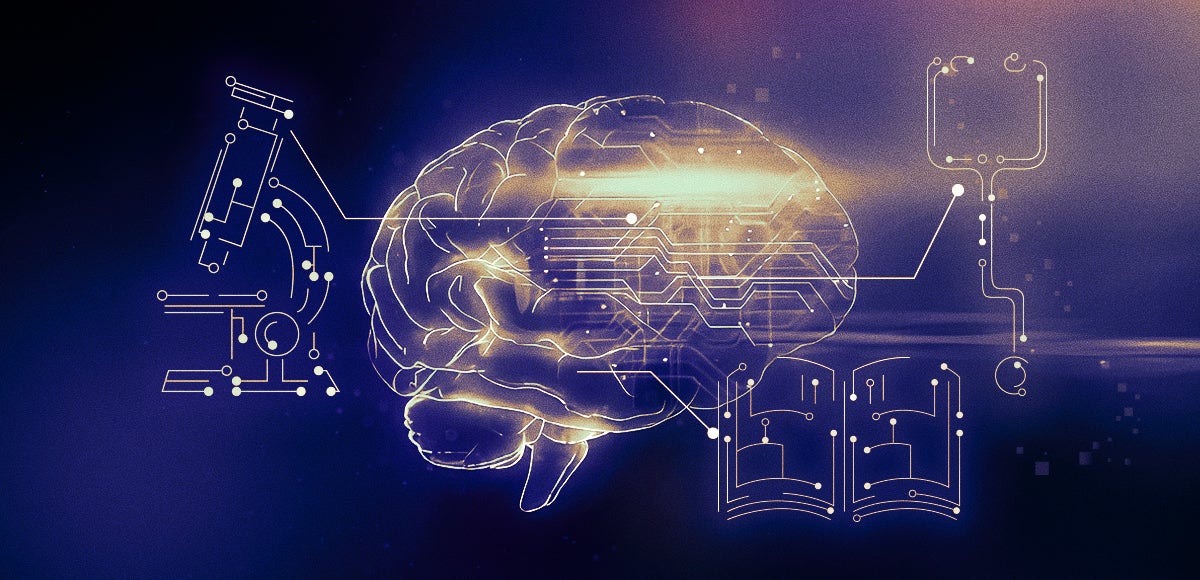
Furthermore, AI can also play a crucial role in ensuring regulatory compliance throughout the drug development process. By automating the analysis of regulatory guidelines and requirements, AI algorithms can help pharmaceutical companies navigate complex regulatory landscapes more efficiently and reduce the risk of non-compliance. This not only speeds up the regulatory approval process but also improves patient safety by ensuring that drugs meet the necessary standards.
Precision Medicine
Artificial intelligence is revolutionizing healthcare through the implementation of precise algorithms that enhance personalized medical treatments. Precision medicine, a field that tailors medical interventions to individual patients based on their unique characteristics, is benefitting greatly from AI advancements. Here are three ways AI is transforming precision medicine:
- Enhanced patient stratification: AI algorithms analyze vast amounts of patient data, including genetic information, medical history, and lifestyle factors, to identify specific subgroups that may respond differently to treatments. This enables healthcare providers to deliver targeted interventions and improve patient outcomes.
- Improved diagnostics: AI-powered systems can analyze medical images, such as X-rays and MRIs, with remarkable accuracy. By detecting subtle patterns and anomalies, AI assists in early and accurate diagnosis, enabling timely treatment initiation.
- Remote monitoring and predictive analytics: AI-enabled remote monitoring devices continuously collect patient data, detecting changes in vital signs and symptoms. This data is then analyzed to predict disease progression, enabling proactive interventions and personalized treatment plans.
Telemedicine
How is telemedicine benefiting from the advancements in artificial intelligence?
Telemedicine, the practice of remote consultations and digital healthcare, is experiencing significant advancements with the integration of artificial intelligence (AI).
AI is revolutionizing telemedicine by enhancing patient care, improving diagnostic accuracy, and optimizing treatment plans. Through AI algorithms, telemedicine platforms can analyze vast amounts of medical data, including patient records, symptoms, and medical literature, to provide real-time insights and support clinical decision-making.
This enables healthcare providers to remotely diagnose and treat patients more efficiently, reducing the need for in-person visits and improving access to care, particularly in underserved areas.
AI-powered telemedicine also enables predictive analytics and personalized medicine, allowing healthcare professionals to tailor treatments based on individual patient characteristics and improve outcomes.
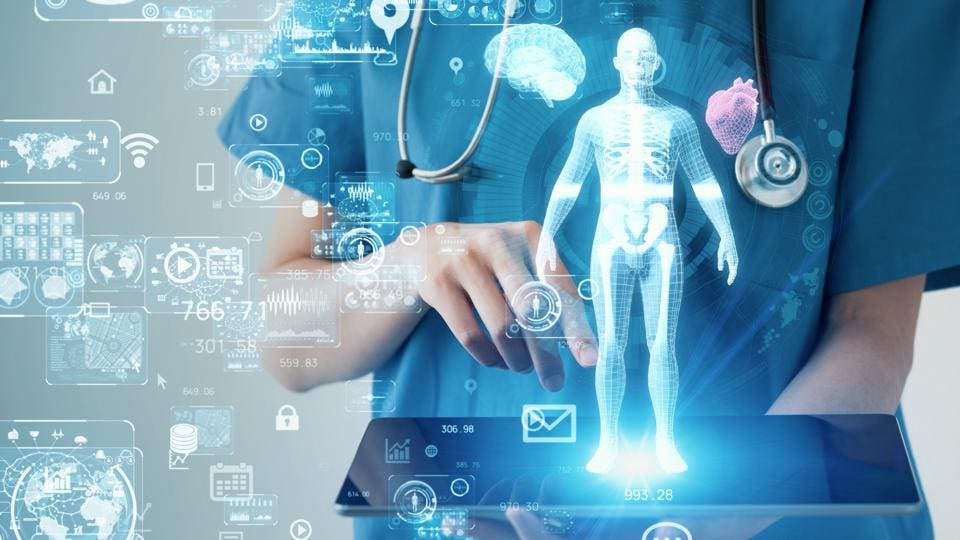
With the ongoing advancements in AI, telemedicine is poised to revolutionize the healthcare landscape by providing accessible, efficient, and personalized care to all.
Prognostics
Prognostics, an area where artificial intelligence (AI) is making significant strides, involves the use of AI algorithms to predict and forecast patient outcomes.
One of the key benefits of AI in prognostics is its ability to detect diseases at an early stage, enabling timely intervention and improved chances of successful treatment.
Moreover, AI can enhance the accuracy of predictions by analyzing vast amounts of patient data, identifying patterns, and making more precise prognostic assessments.
Additionally, AI can provide personalized treatment recommendations based on individual patient characteristics, optimizing patient care and potentially reducing healthcare costs.
AI for Early Detection
Early detection of diseases using artificial intelligence has revolutionized healthcare by enabling proactive intervention and improved patient outcomes. AI technology has played a crucial role in enhancing early detection and prognosis of various conditions.
Here are three ways AI is transforming early disease detection:
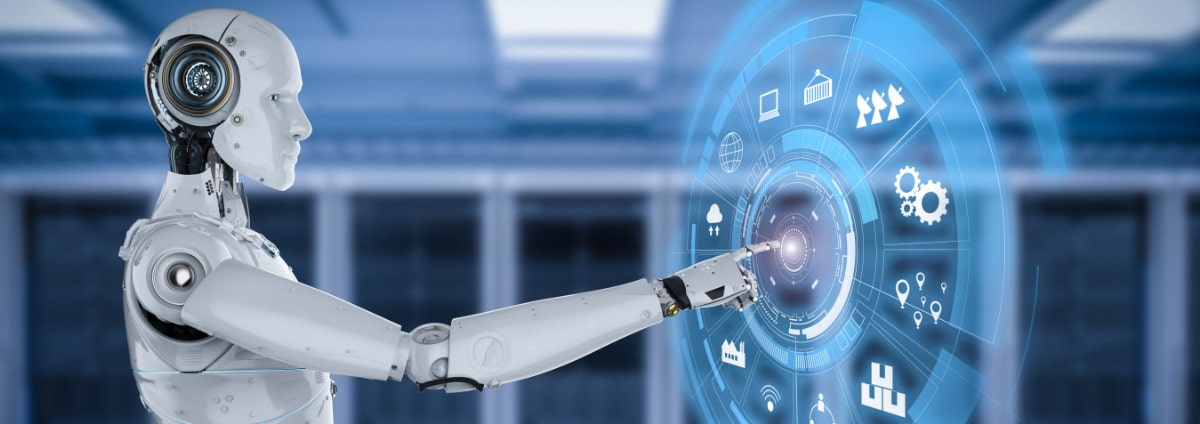
- AI for Telehealth: With the help of AI-powered telehealth platforms, patients can receive remote consultations and screenings. AI algorithms can analyze symptoms, medical history, and even images to identify potential health risks. This allows physicians to detect diseases at an early stage, leading to timely interventions.
- AI for Disease Prevention: AI algorithms can analyze large datasets, including medical records, genetic information, and lifestyle data, to identify patterns and risk factors associated with different diseases. By leveraging this information, healthcare professionals can develop personalized prevention strategies and interventions to mitigate the risk of diseases.
- AI-Driven Diagnostics: AI algorithms can analyze medical images, such as X-rays, MRIs, and CT scans, with remarkable accuracy. By detecting subtle anomalies and patterns that may go unnoticed by human eyes, AI can aid in the early detection of conditions like cancer, cardiovascular diseases, and neurological disorders.
Improving Accuracy of Predictions
AI technology continues to advance the field of healthcare by further improving the accuracy of predictions, specifically in prognostics. By leveraging vast amounts of data and powerful algorithms, AI has the potential to revolutionize the way prognostics are conducted.
One of the key areas where AI is making a significant impact is in improving treatment outcomes. By analyzing patient data, AI systems can identify patterns and make predictions about the effectiveness of different treatment options. This allows healthcare providers to tailor treatments to individual patients, increasing the chances of successful outcomes.
Additionally, AI is also being used to enhance advanced diagnostics. By analyzing medical images, AI algorithms can detect subtle abnormalities that may be missed by human radiologists, enabling earlier detection and intervention.
Personalized Treatment Recommendations
Artificial intelligence is revolutionizing the field of healthcare by providing personalized treatment recommendations based on extensive data analysis and powerful algorithms. This innovative approach has the potential to greatly improve patient outcomes by tailoring treatment plans to individual needs.
Here are three ways in which AI is transforming personalized treatment recommendations:
- Data-driven insights: AI algorithms analyze a vast amount of patient data, including medical records, lab results, and genetic information, to identify patterns and predict the most effective treatment options for specific conditions. This data-driven approach helps healthcare providers make informed decisions and create personalized treatment plans.
- Real-time monitoring: AI-powered devices and wearables enable continuous monitoring of patients' vital signs and health metrics. This real-time data collection allows AI algorithms to track patients' progress and adjust treatment recommendations accordingly, optimizing their outcomes.
- Precision medicine: AI algorithms can identify genetic markers and biomarkers associated with certain diseases or treatment responses. By considering an individual's unique genetic profile, AI can suggest personalized treatment plans that are more likely to be effective, minimizing trial-and-error approaches and improving patient outcomes.
With personalized treatment recommendations driven by AI, healthcare providers can offer optimized care that is tailored to each patient's specific needs, leading to better outcomes and improved quality of life.
Medical Imaging Analysis
Medical imaging analysis has revolutionized the field of diagnostics by utilizing advanced algorithms to interpret and analyze complex medical images.
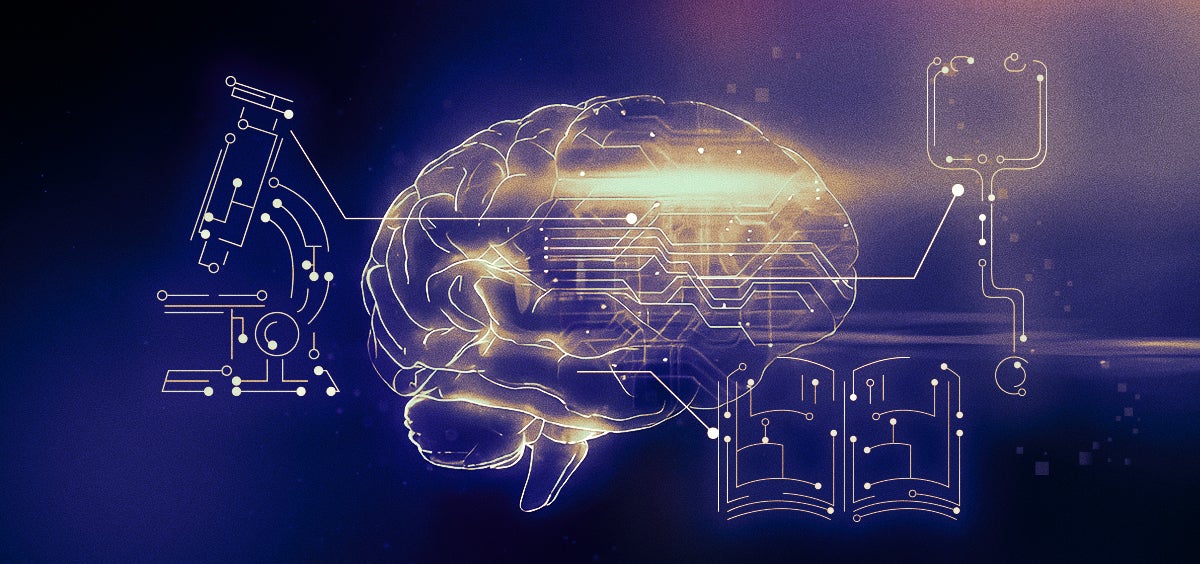
With the help of artificial intelligence (AI), medical imaging advancements have made significant strides in improving accuracy and efficiency of diagnoses.
AI powered diagnostics enable healthcare professionals to detect and identify abnormalities in medical images such as X-rays, CT scans, and MRIs, with greater precision and speed than traditional methods.
By leveraging deep learning algorithms, AI can analyze large volumes of medical images and identify subtle patterns that may indicate diseases or conditions. This technology has the potential to enhance early detection of diseases, improve treatment planning, and ultimately save lives.
With continuous advancements in AI and medical imaging analysis, the future of diagnostics is poised to become even more transformative.
Frequently Asked Questions
How Does Machine Learning Play a Role in the Field of Telemedicine?
Machine learning plays a crucial role in the field of telemedicine by enabling remote patient monitoring and AI-powered diagnosis. These innovative technologies enhance access to healthcare, improve diagnosis accuracy, and facilitate timely interventions, ultimately improving patient outcomes.
What Are Some Innovative Ways Artificial Intelligence Is Being Used in Drug Development?
Artificial intelligence is revolutionizing drug development by enabling faster and more accurate identification of potential drug candidates. It also facilitates personalized medicine by analyzing vast amounts of patient data to tailor treatments to individual needs.
How Can Virtual Assistance Enhance Patient Data Processing and Analysis?
Virtual assistants for healthcare can enhance patient data processing and analysis through automation and AI. Machine learning enables efficient analysis of patient data, leading to telemedicine advancements, precision medicine, and AI-driven medical image analysis.
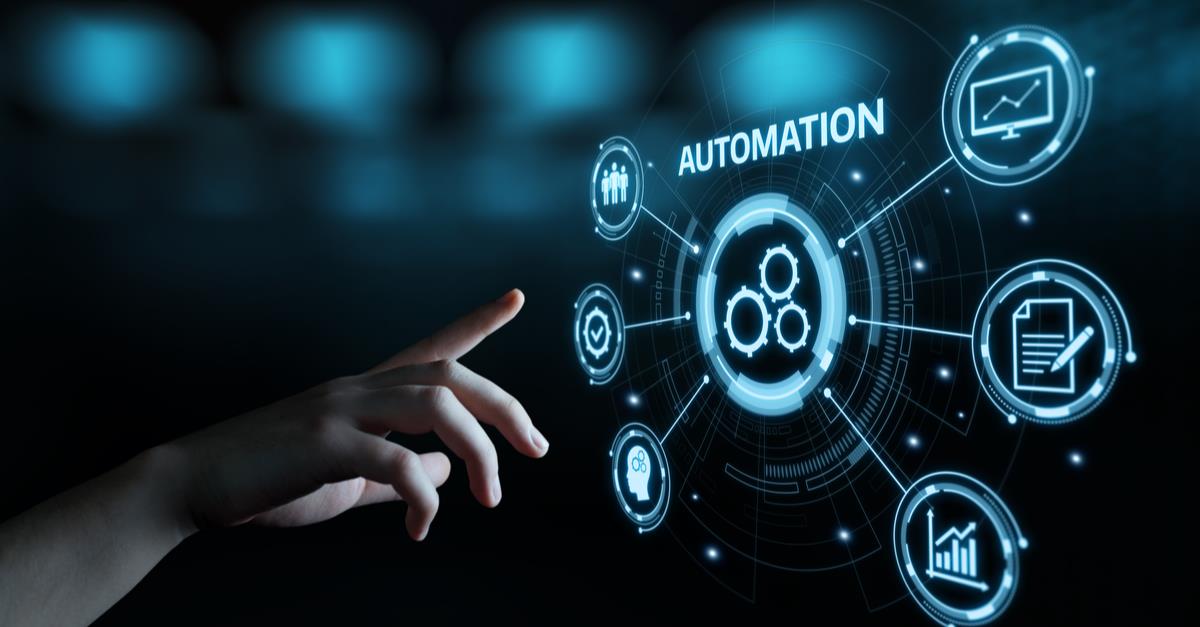
How Does Predictive Analytics Contribute to Precision Medicine?
Predictive analytics plays a crucial role in precision medicine by leveraging predictive modeling and data-driven diagnoses. It enables healthcare professionals to anticipate patient outcomes, identify high-risk individuals, and tailor treatment plans for optimal effectiveness.
In What Ways Is Robotics Revolutionizing Medical Imaging Analysis?
Robotics advancements have revolutionized medical imaging analysis by incorporating artificial intelligence (AI) algorithms. This has led to improved accuracy and efficiency in diagnosing and interpreting medical images, enhancing patient care and treatment outcomes.
 Business & FinanceHealth & MedicineTechnologyLifestyle & CultureScience & EnvironmentWorld NewsPrivacy PolicyTerms And Conditions
Business & FinanceHealth & MedicineTechnologyLifestyle & CultureScience & EnvironmentWorld NewsPrivacy PolicyTerms And Conditions
